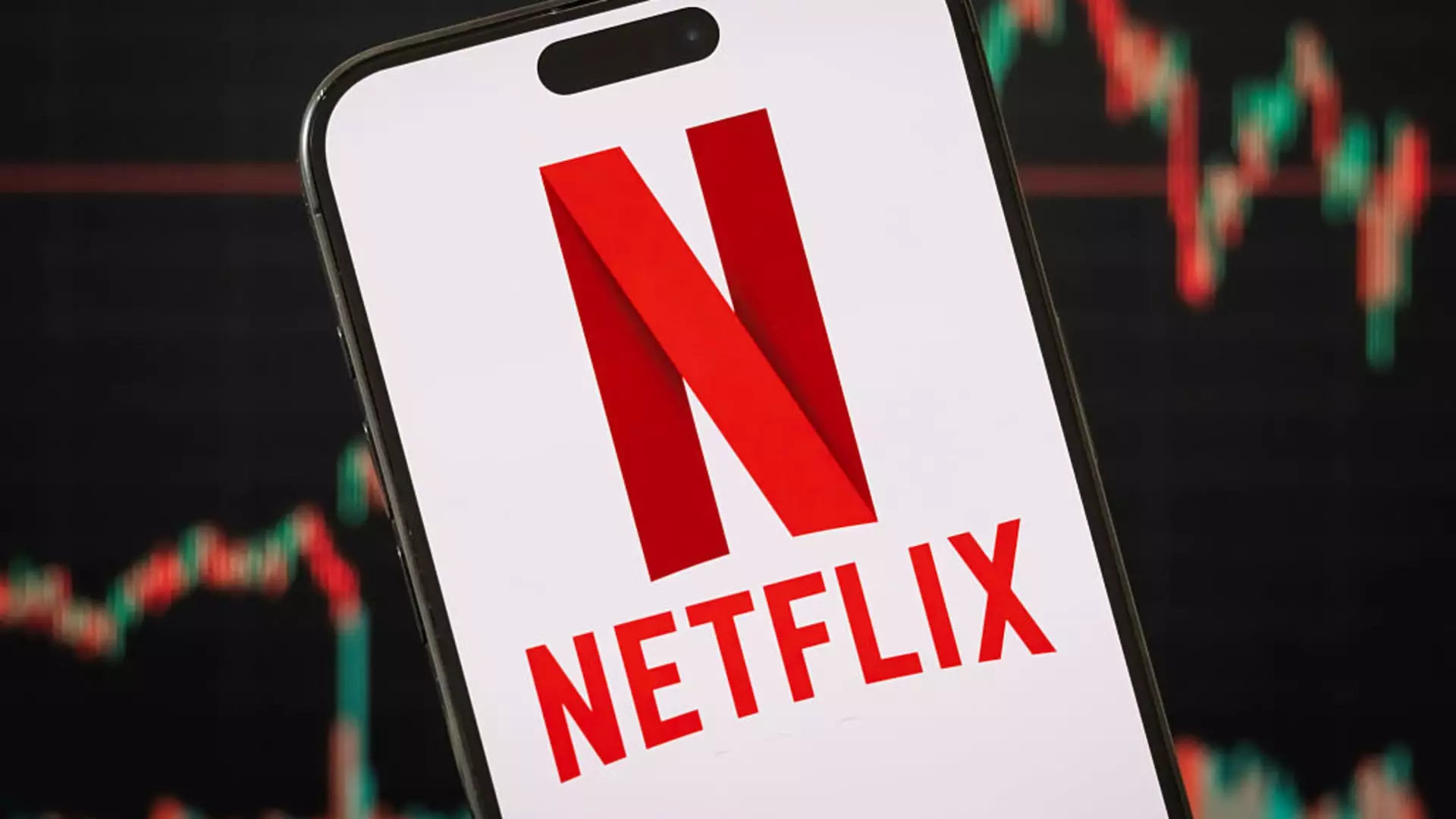Netflix, the streaming behemoth, is currently basking in an unprecedented period of success. The stock has recently experienced 11 consecutive days of gains, a record that signifies not just an upward swing in valuation, but a potential turning point in how we view media consumption in volatile economic climates. This impressive streak has eclipsed its previous high of nine days back in late 2018, which raises the question—are we witnessing a long-term shift, or is this simply a fleeting moment of prosperity?
The stock market has been generally tumultuous, especially amid political uncertainties and trade wars. However, Netflix has managed to rise above the fray. The company’s latest earnings report indicated a remarkable 13% increase in revenue during the first quarter of 2025, driven primarily by higher-than-expected gains in subscriptions and advertising. This resilience speaks to a greater narrative surrounding media consumption, but I can’t ignore the harsh reality that even successful companies are still buffeted by economic downturns.
Economic Resilience or Illusion of Stability?
While Netflix’s success is laudable, it also raises significant concerns about the future landscape of entertainment. Co-CEO Greg Peters recently assured investors that “there’s nothing really significant to note” that could disrupt this growth. But are we too quick to dismiss the volatile nature of consumer behavior, especially as inflation and potential recession loom? Would it not be unwise to accept this apparent stability at face value?
The idea that entertainment is resistant to economic hardship is historically grounded, yet it may not fully encapsulate the nuances of today’s marketplace. As disposable incomes tighten, consumer spending habits invariably shift. Netflix’s model, which offers a range of subscription plans—from a modest ad-supported option to premium offerings—may provide some insulation against economic pressures. Still, the discontinuation of shared membership numbers raises eyebrows. Is Netflix merely swimming in a sea of higher revenue with a stagnant or even dwindling user base?
A Marketing Message or a True Metric of Success?
JPMorgan analysts have come forward to suggest that Netflix possesses “more upside,” regarding its future growth potential. They argue that the company has firmly cemented its leadership in the global streaming market. However, the language here is telling; they speak of Netflix as if it were a secure investment—yet, aren’t we ignoring the warning signs that suggest a potential plateau?
Despite Netflix’s capability to increase subscription fees and deploy innovative advertising strategies, the true question remains unanswered: can they continue to attract new subscribers in a space saturated with competition? Warner Bros. Discovery and Disney, two of Netflix’s closest rivals, have both suffered considerable stock drops since the onset of President Trump’s trade policies. Should we not question why, despite such lofty market reports, competitors are facing dire straits while Netflix thrives?
Adventures in Pricing and Profitability
Netflix’s pricing strategies, which have climbed upwards—now featuring a basic plan at $7.99 and a premium option at $24.99—could be a double-edged sword. On one end, these price points reflect confidence in the brand’s value proposition; on the other, they risk alienating a growing demographic of budget-conscious consumers. The success of the ad-supported tier indicates that Netflix understands the market signal—exploring varied revenue models in terms of advertising may help to bridge the divide.
In this light, does Netflix indeed forecast $43.5 billion to $44.5 billion in full-year revenue, or is this merely a comforting statistic cloaked in obscurity? The company’s silence over subscriber metrics, prioritizing revenue growth instead, is peculiarly disconcerting and stems from an era when transparency was a celebrated asset.
Without doubt, Netflix is achieving record-breaking feats. However, the broader implications of its financial health and consumer loyalty herald an important dialogue. The ongoing economic shifts may bring significant challenges ahead; hence, one must question whether Netflix is truly ushering in a new golden age or merely navigating a temporary wave of euphoria amidst an uncertain economic horizon.

